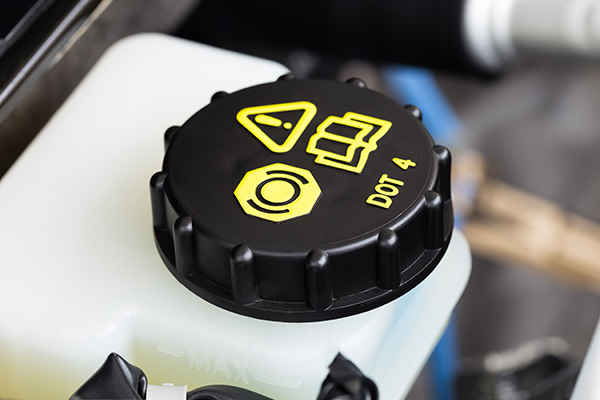
Brake fluid doesn’t get as much attention as engine oil or transmission fluid, but it plays a critical role in your vehicle’s safety. Without it, your brakes wouldn’t work at all. Yet, many drivers go years without changing their brake fluid—sometimes because they don’t know they need to, other times because it’s out of sight and out of mind. So, is replacing brake fluid really necessary, or is it just another way for service shops to upsell you?
What Does Brake Fluid Do
Brake fluid is what allows you to stop your car with just a press of the pedal. Your braking system operates using hydraulic pressure. When you press the brake pedal, fluid moves through the brake lines, applying pressure to the calipers, which then squeeze the brake pads against the rotors. This friction is what slows your car down.
Because brake fluid is incompressible, it ensures a direct and immediate transfer of force from the pedal to the brakes. If the fluid becomes contaminated or degraded, it can introduce air or moisture into the system, reducing braking efficiency and increasing stopping distances.
Why Does Brake Fluid Need to Be Changed
Unlike engine oil, brake fluid doesn’t get "used up" over time, but it does absorb moisture from the air. This is a problem because water lowers the boiling point of brake fluid, which can lead to brake fade—a condition where the brakes become less effective, especially under heavy use.
Over time, brake fluid can also become contaminated with dirt, rust, and tiny metal particles from the braking system itself. This can cause internal corrosion in the brake lines, calipers, and master cylinder, leading to costly repairs.
If you’ve ever noticed your brake pedal feeling "spongy" or requiring more effort to stop the old or contaminated brake fluid could be to blame.
How Often Should You Change Brake Fluid
Most manufacturers recommend changing brake fluid every two to three years, but the exact interval can vary based on driving conditions and vehicle type. Some high-performance vehicles or those driven in extreme conditions may need more frequent changes.
A good way to check the condition of your brake fluid is by looking at its color. Fresh brake fluid is typically clear or light amber. If it’s dark brown or black, it’s time for a replacement.
Signs Your Brake Fluid Needs to Be Replaced
Even if you’re not tracking service intervals, your car may give you warning signs that it’s time for a brake fluid change. These include:
- Spongy or soft brake pedal – If the pedal feels mushy or takes longer to stop the car, the fluid may be contaminated.
- ABS warning light – Some vehicles will trigger the ABS (Anti-lock Braking System) light if there’s an issue with brake fluid pressure.
- Longer stopping distances – If your car isn’t stopping as quickly as it used to, degraded brake fluid might be a factor.
- Discolored fluid – If the brake fluid in the reservoir looks dark and dirty, it needs to be replaced.
What Happens If You Never Change Your Brake Fluid
Neglecting brake fluid changes can lead to serious problems. Moisture buildup can corrode brake lines and components, leading to expensive repairs. Worse, overheated or degraded fluid can cause complete brake failure under extreme braking conditions.
Replacing brake fluid is a simple, low-cost service compared to the price of repairing corroded brake lines or replacing an entire braking system. Regular brake fluid maintenance is necessary if you plan to keep your car for the long run.
Brake fluid may not seem like a big deal—until it is. If it’s been years since your last brake fluid change, don’t wait until your stopping power is compromised. Robbie’s At Your Service in Merritt Island, FL, offers professional brake fluid flushes and inspections to keep your braking system in top shape. Call today to book your service!